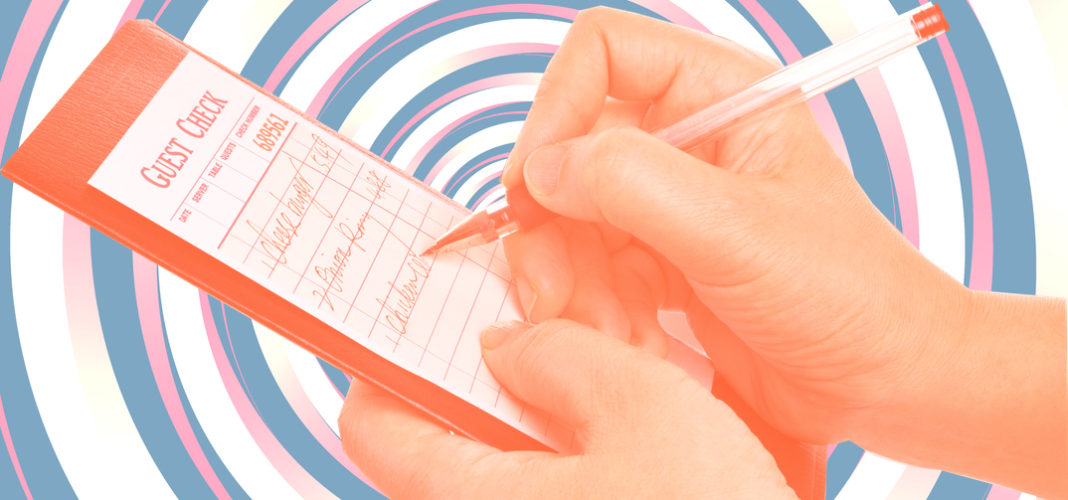Ordering dinner at a restaurant seems like a relatively straightforward process. You look over the menu, listen to the waiter pitch specials and make a decision. You order.
Not so fast. Research in psychology reveals that what we order has little to do with what we feel like eating or how hungry we are. There are a number of factors influencing us.
1. The menu
Unbeknownst to most customers, where items are placed on a menu makes a difference. As renowned psychologist and food expert Paul Rozin’s research demonstrates, dishes placed at the top or the bottom of the menu of their category are up to twice as popular as those placed in the center of the list.
Text also matters and descriptive menu labels have been shown to boost sales, too. For instance, “cooked in our wood-burning oven” is more appealing than “fried” or “roasted.” Descriptions that trigger happy memories are especially popular: “Grandma’s home-baked potatoes” sounds so much better than “baked potatoes.”
2. The first order influences the rest
According to Tom Rath, if the first person ordering chooses a healthy option it puts subconscious pressure on everyone else to follow suit. However, if the first person chooses the fried chicken, it subtly encourages others to give in to temptation. This behavior facilitates what Rath describes as the “It’s not as bad as what she ordered mentality,” justifying less-than-healthy choices.
3. The more people you dine with, the more food you consume
The presence of other people influences not only what is eaten but also how much is eaten. Studies show that eating with friends often leads to longer meals where more food is consumed. Observing the eating behavior of someone else, such as a role model, a parent or a friend, can subconsciously influence your choices. For example, if your boss offers you a cookie, odds are you will take one. If your friend asks for the dessert menu and wants to order the cheesecake, you will probably order something too, or at the very least decide to split something.
4. Family style doesn’t help, either
As Rath’s research demonstrates, when extra food is readily available and within reach, people are more likely to consume more.
My advice: Pay attention. Be mindful when ordering and eating. Before you get to the restaurant, think about what you want to eat and stick to the plan. Next time you feel the overwhelming urge to order the steak and French fries, be sure you really want it.
I wish you all the best,
Dr. Samantha Boardman






